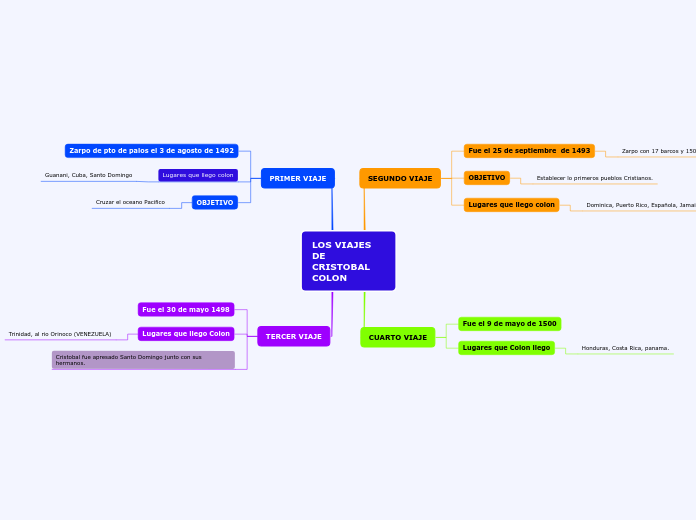por Ramon Antonio Loza F. 5 anos atrás
6123
MAPA MENTAL DE VIAJES DE CRISTOBAL COLON

por Ramon Antonio Loza F. 5 anos atrás
6123

Mais informações
In linguistics, syntax is the set of rules, principles, and processes that govern the structure of sentences in a given language, usually including word order.
A compound sentence is a sentence that has at least two independent clauses joined by a comma, semicolon or conjunction. An independent clause is a clause that has a subject and verb and forms a complete thought.
Create your own compound sentences, using the coordinators above.
When independent clauses are joined with coordinators (also called coordinating conjunctions), commas and semicolons, they do more than just join the clauses. They add meaning and flow to your writing.
A complex sentence is a sentence that contains an independent clause and one or more dependent clauses.
An independent clause can stand alone as a sentence, but a dependent clause even though it has a subject and a verb cannot stand alone.
Attributive clauses serve as an attribute to a noun (pronoun) in the main clause. This noun or pronoun is called the antecedent of the clause.
An adverbial clause is a group of two or more words that function as an adverb in a sentence.
See the example below and try to create your own simple sentences.
Tim is driving the car with his mother.
See the example below and try to create your own simple sentences.
Tim drives.
Traditional grammar defines the object in a sentence as the entity that is acted upon by the subject.
The direct object is the receiver of the action mentioned in the sentence.
The predicate of a sentence is the part that modifies the subject in some way. Because the subject is the person, place, or thing that a sentence is about, the predicate must contain a verb explaining what the subject does and can also include a modifier.
The subject of a sentence is the person, place, thing, or idea that is doing or being something. You can find the subject of a sentence if you can find the verb.
Ask the question, 'Who or what 'verbs' or 'verbed'?' and the answer to that question is the subject.